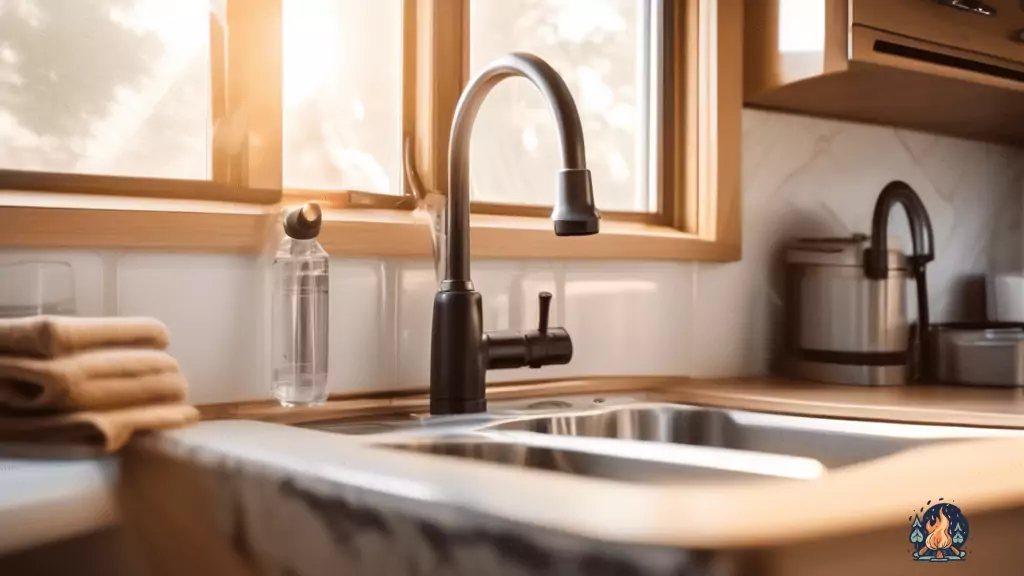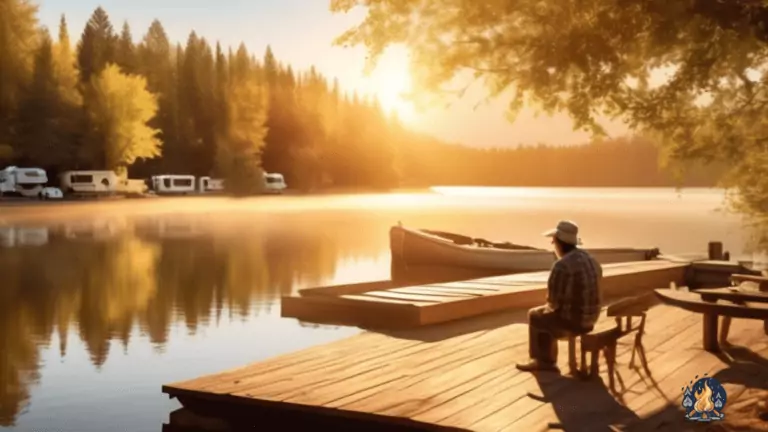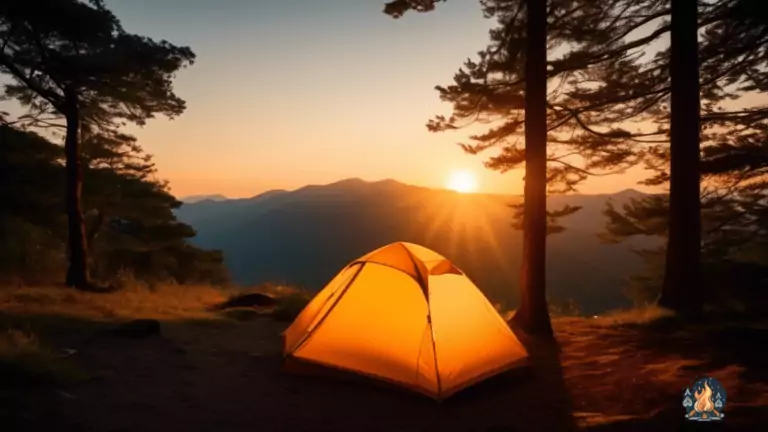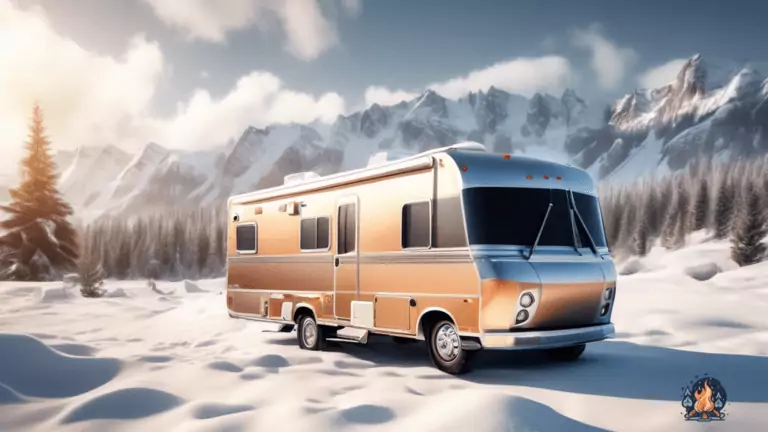Essential RV Water System Maintenance Tips For Beginners
by Kevin Fairbanks • Updated: January 21, 2024
Keep your RV water system running smoothly with these essential maintenance tips for beginners. Avoid costly repairs and ensure a hassle-free journey. Click here to learn more and start taking care of your RV today!

Are you a beginner when it comes to maintaining your RV’s water system? Don’t worry, we’ve got you covered!
In this article, we will explore some essential tips to keep your RV’s water system in top shape. From understanding how your system works to proper cleaning and sanitization techniques, we’ll help you navigate the world of RV water system maintenance with ease.
So, grab your toolkit and let’s dive in!
Juxtaposed against the excitement of hitting the open road in your RV is the daunting task of maintaining its water system. But fear not, dear beginner, for we have the tips and tricks to make this endeavor a breeze.
Whether you’re a weekend warrior or a full-time traveler, understanding your RV’s water system is the first step to ensuring a smooth journey. From regular cleaning and sanitization to checking for leaks and repairs, we’ll guide you through each aspect of maintenance.
And to top it all off, we’ll even share some water conservation tips, because saving water is not only good for the environment, but also for your wallet.
So, buckle up and get ready to become an RV water system maintenance pro!
Key Takeaways
- Reusing water for cleaning and washing can significantly save water for RV owners.
- Promptly fixing leaks in the water system is crucial to prevent water waste and potential damage to the RV.
- Water conservation should be a priority for RV owners to minimize their environmental impact.
- Regular maintenance and inspection of the RV water system are essential for its efficient operation and longevity.
Understanding Your RV Water System
Now that you’ve learned the basics of RV water systems, it’s time to dive deeper and understand how your water system actually works. Trust me, it’s not as complicated as trying to untangle a slinky or assembling Ikea furniture without the instructions.
Your RV water system consists of three main parts: the fresh water tank, the water pump, and the plumbing system. Think of it as a well-orchestrated dance between these components, with water flowing in and out like a synchronized swimming routine.
First up, we have the fresh water tank. This is where all the magic happens, my friend. It’s like your own personal water reservoir on wheels. The tank stores the fresh water that you’ll be using for drinking, cooking, and showering. It’s important to keep this tank clean and regularly sanitize it, unless you want to be sipping on water that’s been fermenting since the ’80s.
Next, we have the water pump. This little guy is the heart of the operation, pumping water from the fresh water tank to all the faucets and appliances in your RV. It’s like the DJ of the water system, controlling the flow and making sure everyone gets their fair share of H2O. Just like any DJ, it can get a little noisy at times, so don’t be alarmed if you hear it humming away in the background while you brush your teeth.
Lastly, we have the plumbing system. This is where all the water flows through, like a labyrinth of pipes and valves. It’s like a mini water highway, guiding the water to its final destination. Just be careful not to confuse it with a game of Mario Kart, because you definitely don’t want to go sliding down any green pipes.
So, my friend, now that you’ve got a better understanding of your RV water system, it’s time to put on your water goggles and dive into the world of maintenance. Don’t worry, I’ll be right here with you, armed with a snorkel and a few more jokes to keep you entertained.
Regular Cleaning and Sanitization
To keep your water system in good condition, it’s important to regularly clean and sanitize it.
Think of it as giving your RV a refreshing spa day!
Start by flushing out any remaining water and debris from the system. You can do this by opening all the faucets and letting the water flow out.
Don’t forget to also drain the hot water tank and remove any sediment that may have built up.
Next, it’s time to get your cleaning supplies ready. Grab some RV-friendly cleaning solution and a long brush or pipe cleaner.
Start by scrubbing the inside of the water tank to remove any gunk or residue. Make sure to reach all the nooks and crannies!
Then, move on to cleaning the pipes and faucets. Give them a good scrub to get rid of any potential bacteria or mold.
Once everything is nice and clean, it’s time to sanitize! Mix a solution of water and bleach in a ratio of 1/4 cup bleach to 15 gallons of water.
Use this solution to fill up your water tank and run it through the entire system.
Let it sit for a few hours, then flush it out with fresh water. This will ensure that any remaining bacteria or germs are eliminated.
Remember, a clean and sanitized water system is essential for your health and the longevity of your RV. Plus, it’ll make your water taste so much better!
So don’t forget to give your water system some love and attention on a regular basis.
Your RV will thank you by providing you with clean and fresh water on all your adventures!
Checking for Leaks and Repairs
Checking for leaks and making necessary repairs is crucial for ensuring the proper functioning of your RV’s water system. Leaks can cause water to be wasted, leading to increased water bills and potential damage to your RV’s interior. To help you identify and fix leaks, here are some tips and tricks.
First, let’s talk about how to spot leaks in your RV’s water system. One way is to conduct a visual inspection of all the water connections, pipes, and faucets. Look for any signs of water dripping, pooling, or discoloration around these areas. Another method is to use the "paper towel test." Simply wrap a piece of dry paper towel around each connection point and faucet and leave it for a few hours. If the paper towel becomes wet, you likely have a leak.
Once you’ve identified a leak, it’s time to make the necessary repairs. Depending on the severity of the leak, you may be able to fix it yourself or seek professional help. For minor leaks, you can use pipe tape or sealant to seal the affected area. If the leak is more significant, you may need to replace a faulty pipe or faucet. Remember, it’s essential to address leaks promptly to prevent further damage and ensure your RV’s water system functions properly.
Now, let’s imagine a table that showcases the common areas where leaks may occur in an RV’s water system:
| Area | Common Causes of Leaks | Possible Solutions |
|---|---|---|
| Water Pump | Loose fittings or worn-out seals | Tighten fittings, replace seals |
| Faucets | Damaged washers or O-rings | Replace washers, O-rings |
| Water Tanks | Cracked or corroded tanks | Patch cracks, replace tanks |
| Connections | Loose or damaged connections | Tighten connections, replace if necessary |
Remember, while leaks can be a nuisance, they can also be easily fixed with a bit of know-how and the right tools. So, be vigilant in checking for leaks and make the necessary repairs to ensure a smooth and leak-free experience with your RV’s water system. Happy camping!
Proper Winterization
Make sure you properly winterize your RV water system to avoid costly repairs and freezing pipes. Trust me, you don’t want to deal with burst pipes in the middle of winter. It’s like trying to juggle flaming torches while riding a unicycle – entertaining for bystanders, but a downright disaster for you.
So, grab your antifreeze and let’s get to work!
First things first, drain all the water from your RV’s water system. This includes the fresh water tank, the hot water heater, and all the water lines. It’s like giving your RV a good shake to get rid of any lingering water droplets.
Once you’ve drained everything, it’s time for the fun part – adding antifreeze. No, not the kind you put in your car, we’re talking about RV antifreeze. Pour it into your fresh water tank and then turn on all the faucets until you see the pink liquid flowing. It’s like a magical pink waterfall, but instead of unicorns, it’s protecting your precious pipes from freezing.
Now that your RV water system is properly winterized, you can sit back, relax, and enjoy the winter wonderland knowing that your pipes are safe and sound. Just remember, when it comes to winterizing your RV, don’t be like a squirrel hoarding acorns for the winter – be proactive and take care of your water system.
Trust me, your future self will thank you, and you’ll avoid the headache of costly repairs.
Happy winterizing!
Water Conservation Tips
Implementing effective water conservation strategies is crucial for beginners looking to maintain their RV water system. Not only will it help you save precious water, but it will also ensure that your RV’s water system operates smoothly and efficiently.
So, here are three water conservation tips that will make a splash in your RV lifestyle:
- Shorten your showers: We all love a nice, long shower, but in an RV, water is a limited resource. So, try to keep your showers short and sweet. Challenge yourself to finish your shower before your favorite song ends on the radio. Not only will this save water, but it will also make your morning routine a little more exciting.
- Reuse water whenever possible: Don’t let any drop go to waste! Consider collecting the water used for rinsing fruits and vegetables and use it to water your plants or flush the toilet. You can also collect rainwater to use for various tasks, such as cleaning or washing your RV. Get creative and find ways to reuse water in your everyday activities.
- Fix leaks promptly: Leaks can be a major water waster in an RV. So, if you notice any leaks in your water system, fix them right away. Don’t let those drips turn into a waterfall. Remember, every drop counts, and by fixing leaks promptly, you’ll not only save water but also prevent potential damage to your RV.
By following these water conservation tips, you’ll not only become a savvy water-saver but also ensure the longevity and efficiency of your RV water system.
So, go ahead and make a splash in the world of water conservation!
Frequently Asked Questions
How often should I replace the water filter in my RV water system?
You should replace the water filter in your RV water system every 3 to 6 months. Don’t wait until it’s as clogged as a highway during rush hour! Keep your water flowing clean and fresh.
What type of cleaning agents should I use to sanitize my RV water system?
To sanitize your RV water system, use cleaning agents like vinegar or bleach. They’ll scrub away germs and bacteria like a tornado in a teacup! Make sure to follow safety guidelines and rinse thoroughly.
Are there any specific signs or symptoms that indicate a leak in the RV water system?
If you notice water mysteriously disappearing or find a wet spot where it shouldn’t be, you might have a leak in your RV water system. Time to put on your detective hat and get that leak fixed!
Can I use antifreeze from a regular store for winterizing my RV water system?
Yes, you can use antifreeze from a regular store for winterizing your RV water system. Just make sure to get the non-toxic kind, because the last thing you want is your water tasting like a failed chemistry experiment.
Are there any restrictions or regulations on water usage in RV parks or campgrounds?
Sure, there might be some restrictions on water usage at RV parks or campgrounds. So, be prepared to conserve water like a pro! Remember, you’re not just a camper, you’re an undercover water-saving superhero!

Hi, I’m Kevin, a lifelong camping enthusiast and the voice behind Campfire Discoveries. From tent to RV to cabin camping, I’ve explored it all. Join me as we share stories and tips around the campfire, deepening our connection with the great outdoors.
Keep Reading
-
Cast A Line: RV Parks With Fantastic Fishing
Ready to reel in the big catch? Explore these RV parks with fantastic fishing for the ultimate angler’s paradise. Discover where to cast a line and hook your next adventure today!
-
Illuminate Your Adventures With A Camping Headlamp
Gear up for your next camping trip with the ultimate tool – a camping headlamp. Illuminate your adventures and stay safe in the dark. Click now to light up your outdoor experience!
-
A Comprehensive Guide To RV Winterization For Beginners
Protect your RV this winter with our comprehensive guide! Learn how to properly winterize your vehicle and keep it in top shape. Don’t miss out on the essential tips and tricks for beginners. Get started now!



